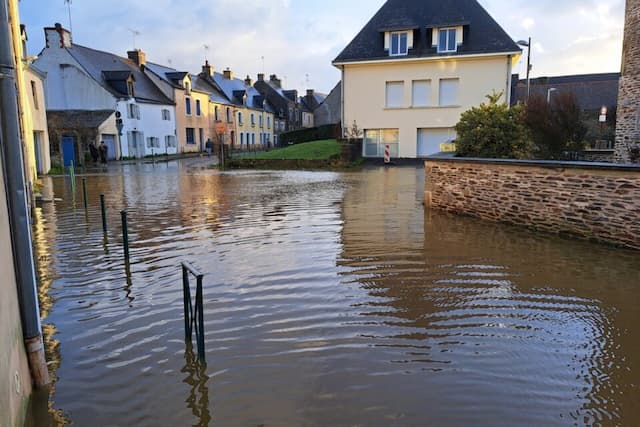Morbihan: Alert to Tropical Jellyfish, Swimming Prohibited

Several municipalities of Morbihan have taken municipal bylaws to prohibit swimming on their beaches because of the presence of physalis. These “jelly-like” jellyfish that usually live in the warm waters of tropical regions are very venomous.
Several municipalities of Morbihan have taken municipal bylaws to prohibit swimming on their beaches because of the presence of physalis, animals resembling jellyfish whose bites can be dangerous.
Driven to the shores of Europe by the recent strong storms over the Atlantic, these physalises, also known as “Portuguese galleys” or “sea bladders”, have been stranded in recent days on the beaches of the west of Morbihan, near Lorient. Municipal by-laws temporarily prohibit bathing and access to water on all the beaches of the communes of Ploemeur, Guidel, Larmor-Plage and Erdeven and on the beach of Saint-Pierre-de-Quiberon.
Their “float”, filled with gas, may well present attractive colors, drawing on blue, pink and purple, physalis, gelatinous close to jellyfish that usually live in the warm waters of tropical regions, none the less, they are very venomous. “Do not touch them, even when they are stranded on the beach, dead, their toxin is still active,” says Maureen Midol, a keen aquarium specialist at the Oceanopolis in Brest. “The consequences vary from one person to another, but physalis can cause sharp skin reactions and breathing difficulties and muscle, even cardiac arrest , ” she adds.
The bathing ban falls out of the way during the holidays of All Saints’ Day and the temperatures are particularly mild for the season in the region. “The communes want to cover themselves and do zeal while we find physalies almost every year on our shores and there have never been any serious consequences. Nobody is listening anyway, there is still a lot of people in the water, “ says Laurent-Claude Perez, who surfs every lunchtime in Guidel, a spot popular with the department. Worn by winds and currents, physalis had already been stranded on several beaches in Finistère in September. Their presence also caused the closure of several beaches in Gironde in the heart of summer 2011.
Enjoyed this? Get the week’s top France stories
One email every Sunday. Unsubscribe anytime.


